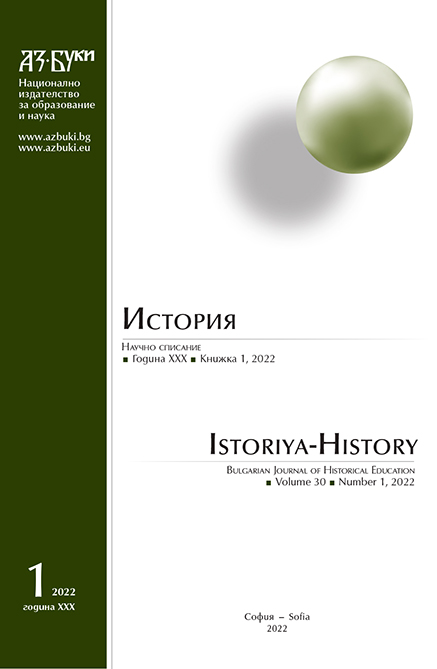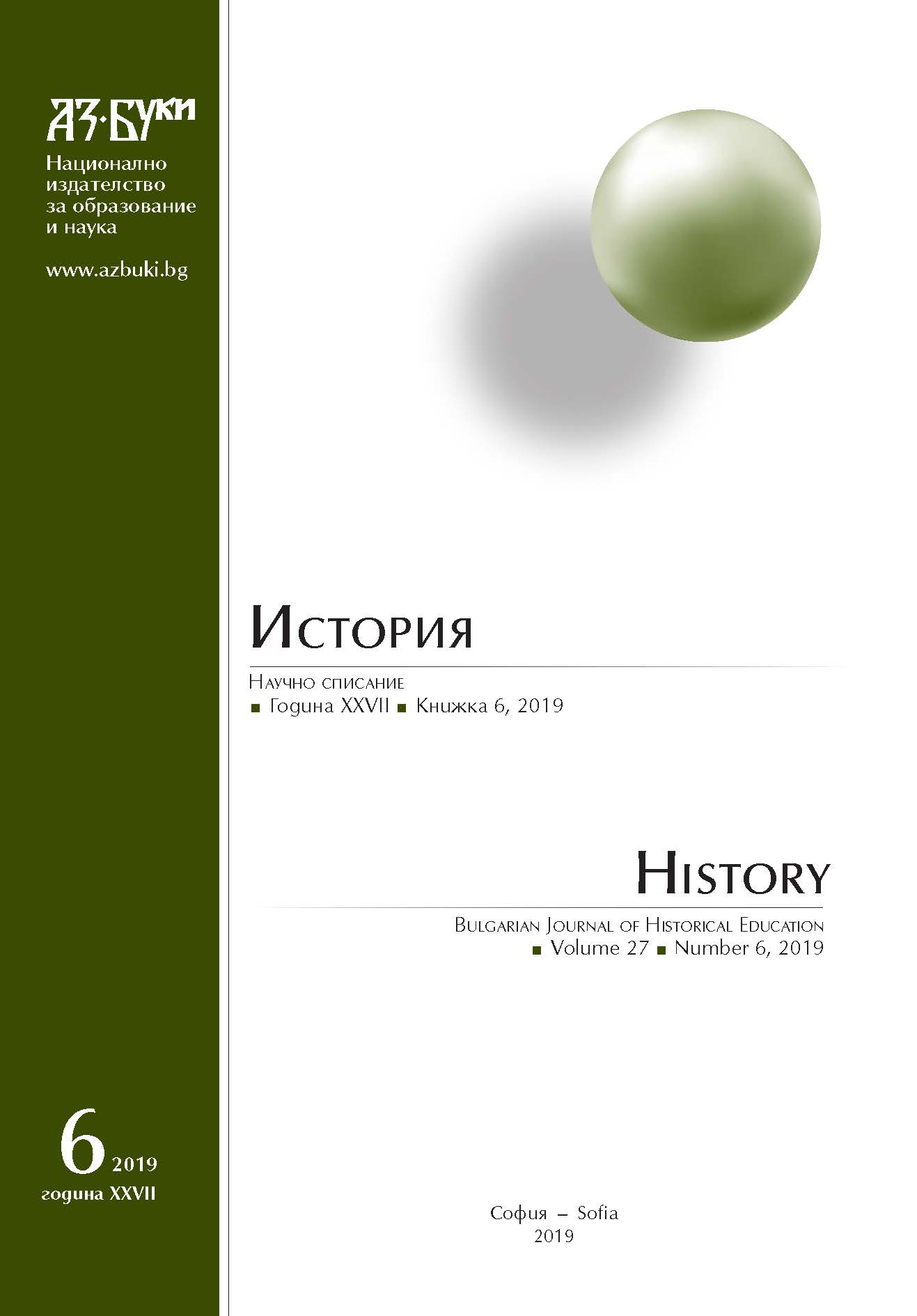
We kindly inform you that, as long as the subject affiliation of our 300.000+ articles is in progress, you might get unsufficient or no results on your third level or second level search. In this case, please broaden your search criteria.

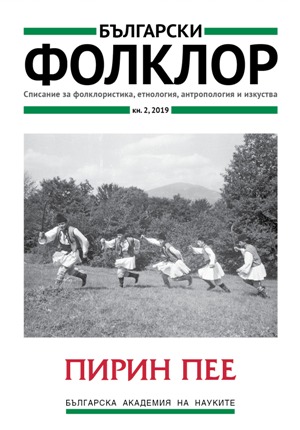
The article presents Voditsi rite in the village of Dobarsko (Razlog Municipality, Blagoevgrad Region) and the ritual song repertoire, characterized by its antique musical thinking, melody and rhythmic specifics. The scholarly focus is centered on the processes of development of the traditional rites in the local culture. The diachronic point of view to the rite reveals the dynamics in the course of time as far as from the second half of the 1950s to the middle of the 1980s Voditsi rite performed in Dobarsko by young virgins has stopped to exist. After that the rite is reconstructed, but mainly as a performance on the scene. Today the rite is an important element of the cultural heritage of the village and functions as a sign of local identity.
More...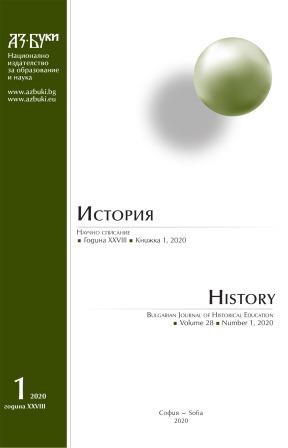

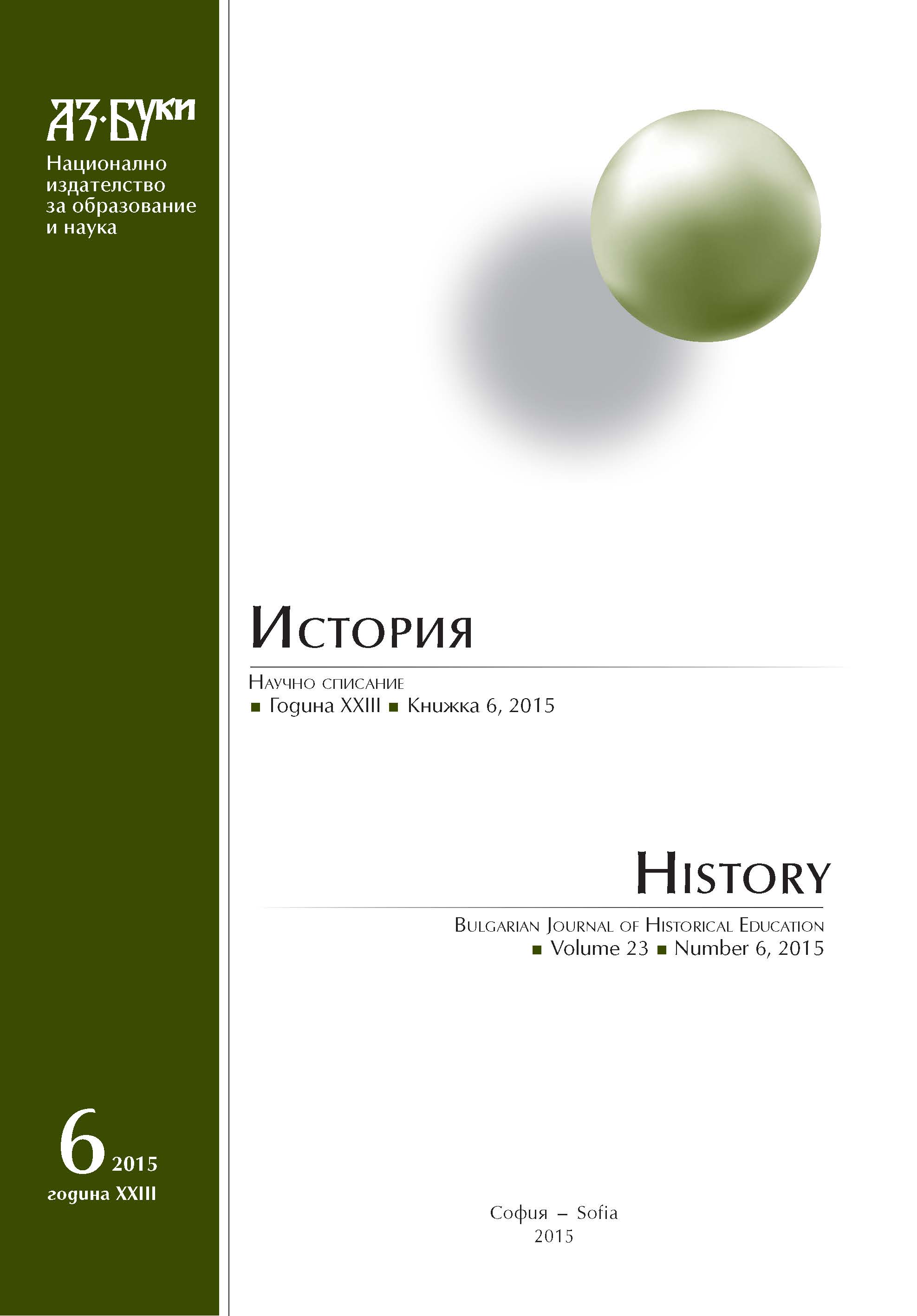


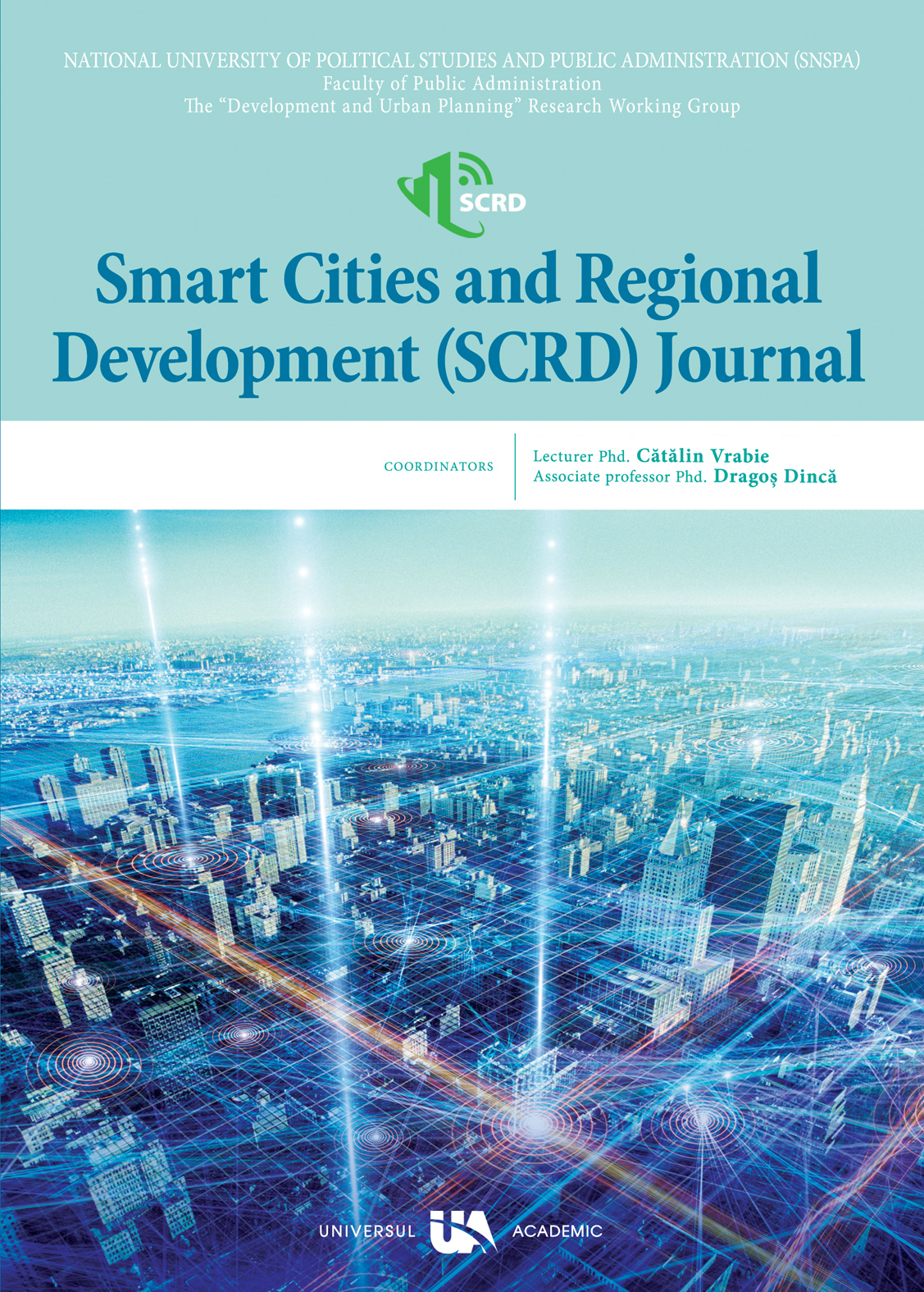
Poverty affects women more forcefully causing increased proportion as well as types of deprivations, a phenomenon called feminisation of poverty. Migration of rural poor to cities causes problems of its own, more so for the women. They come to cities in a bid to escape from rural unemployment and deprivation but lead insecure lives in the cities, exemplified by the urban domestic helps. The co-existence of feminisation and urbanisation of poverty affects the women and their families, particularly children, especially the girl child, who begins to experience deprivations in all its forms from a tender age. These reduced circumstances thus perpetuate across generations of poor urban women and entrap them deep in poverty.The objectives of this study are two-fold. Scientific literature is scanned for indicators used to study feminization of poverty and the validity of these indicators in the given context is examined. Secondly, the study aims to explore the most relevant indicators through direct interaction with the target population. Existing literature on feminized poverty is replete with studies that have used household as the unit of observation. While there are strong justifications for the choice, this approach is unable to address the intra-household inequalities. This study therefore employs the individual woman domestic worker as the unit of observation. The survey method, using questionnaire is employed for collecting the primary data.
More...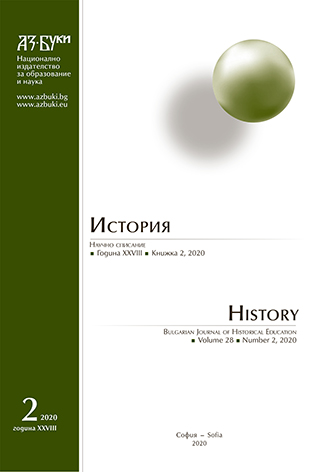
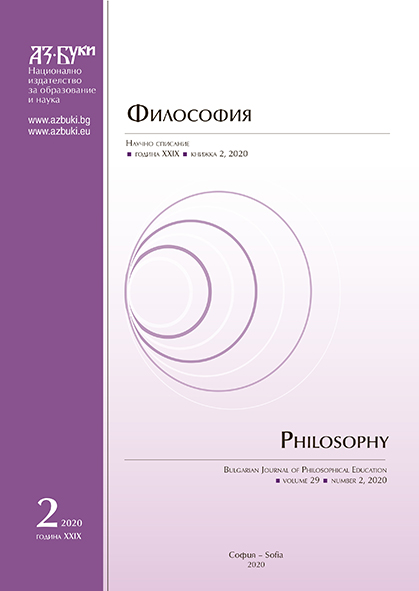
The article analyzes the gender and existential dimensions of man in the age of globalization and their reflection in philosophical education. Philosophical education aims to actualize criticality, creativity, humanism – a philosophical worldview that becomes a counteraction to any consciousness manipulation. It is proved that philosophical education in a democratic society is always a science – teaching and mastering philosophical knowledge is necessarily supplemented by philosophical creativity. The answer to the challenges of gender innovation and transhumanism is, above all, teaching and research in the field of philosophical anthropology, which becomes a meta-anthropology and promotes the concepts of gender partnership and androgynism.
More...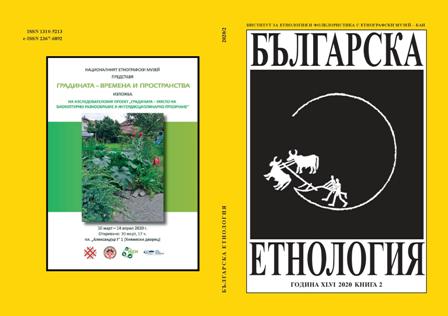
The marital partners in mixed families engage in a form of cultural transition as a result of negotiating the differences between them. This leads to the development of a new cultural model which is influenced by or even combines both partners’heritages. An important aspect of this intercultural interaction is the festivities, more particularly the manner of their functioning, especially within bi-religious families. Hence, the festive events appear to form an essential and very visible part of each partner's own cultural heritage, which the couple more or less incorporate into their mixed family’s life. This article focuses on several ethnocultural (including religious), as well as social aspects of the festivities of couples composed by Bulgarians and foreigners of the Middle East and North African countries. The text considers the place of the festivities in the lifestyle of the partners and their children, as well as the agents’attitudes, personal motivations and involvement in certain activities.
More...
In historical ethnology, women’s servants is a social phenomenon related to the so-called “West European” family model characterized by late matrimony. In Bulgaria, under the influence of socio-economic factors in the country and the modernization of the Bulgarian society in the first half of 20th century, the servantship developed and became very popular in the decades after World War I. In the next decades, it underwent numerous changes which led to slow but steady turn in the understanding of it. The study of its development and the outlining of the different stages with their age and gender characteristics allow us to trace the changes in the Bulgarian society in the previous century. It is also important to outline the regional characteristics which show important specifics of the existence and development of women’s servantship. Because of its strong influence over the life of different social groups in the society and its transformation into a vehicle of cultural exchange between them, the servantship could be defined also as a social mediator. It creates a peculiar bridge between the village and the city and facilitates the penetration of the new West European culture and urban patterns in the small local village community. The changes in the attitudes towards servantship as well as its popularity give us important information about the society as a whole and allow tracing the changes in the matrimonial models. The article is dedicated to the labour mobility of the young girls from the Tuzlukregion (Municipality of Antonovo, District of Targovishte) which expands in the course of time and to their hiring as housemaids mainly in the capital of Sofia. The study is based on the narratives of local people gathered during two short fieldworkresearches in the Municipality of Antonovo.
More...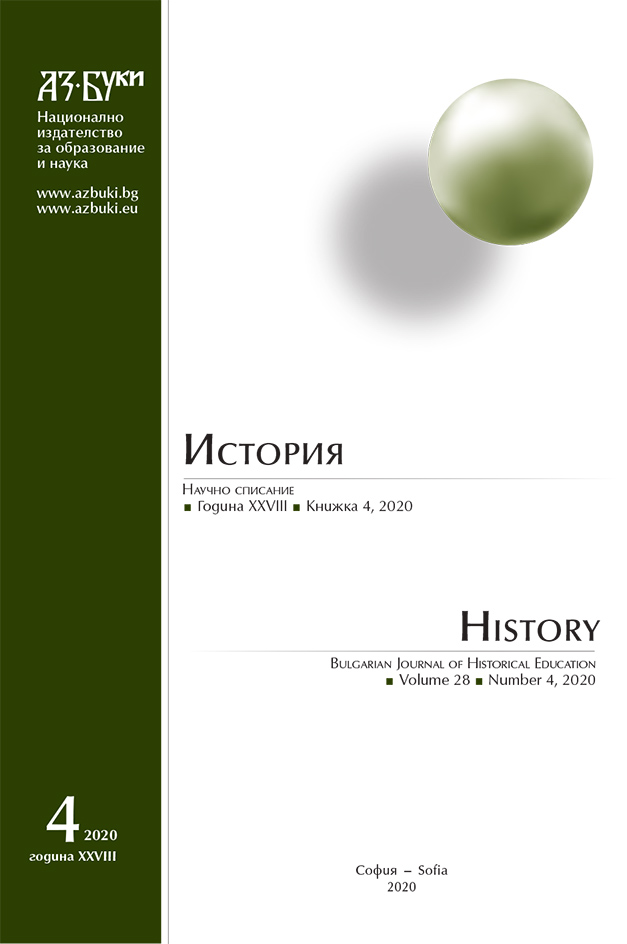
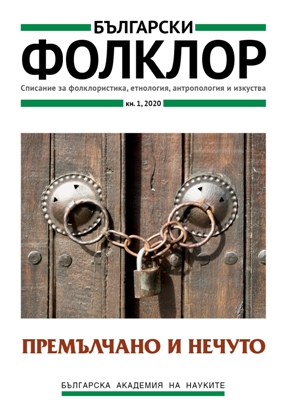
The article draws attention to the linguistic aspects of the problem of speaking in the field of gender and sexual relations. My observations show numerous examples of euphemistic names for marital status, sexual relations and intimate body parts. The presence of euphemisms in the tabloid media and their active use there refute the perception in linguistics (and in particular in stylistics) that euphemisms are a feature of a single type of socially restricted speech (i.e. that they are part of official / high registers). My observations clearly show that in the media environment in Bulgaria there is a clear tendency for the active use of euphemisms within the informal speech register. This tendency is defined as brand new, formed at the end of the 20th century and actively manifested at the beginning the 21st century in journalistic style. Dysphemistic nominations are mostly jargon words and contradictory evaluations include nominations belonging to the group of international terms – impotent, vagina, penis. The transformation of medical terminology into dysphemisms and taboo names is due to the fact that the denoted concepts are strongly prohibited. This is further transmitted to the very terms denoting them.
More...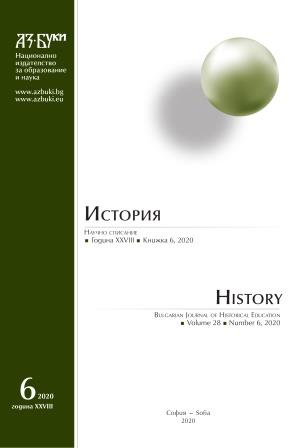
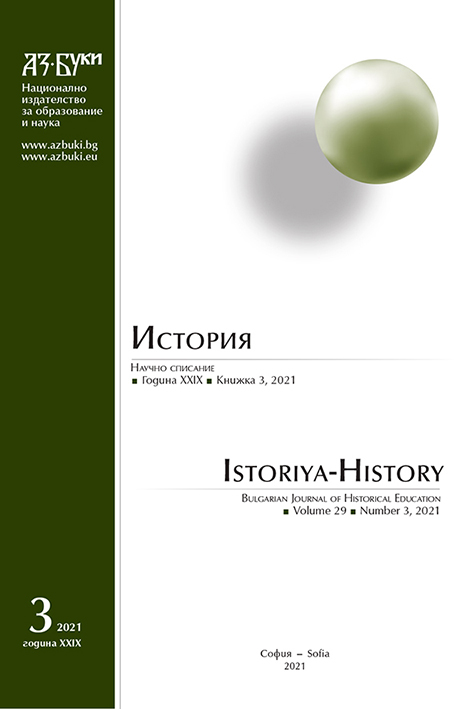
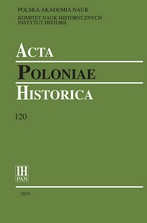
General works: Wspólne dziedzictwo. Rzeczpospolita Obojga Narodów w polskiej, litewskiej i ukraińskiej historiografii XIX – XXI wieku [Common Legacy. The Polish-Lithuanian Commonwealth in the Polish, Ukrainian, and Lithuanian Historiography from the Nineteenth till the Twenty-First Century], ed. by Mariola Hoszowska, Joanna Pisulińska, Paweł Sierżęga and Leonid Zaszkilniak, University of Rzeszów Press, Rzeszów, 2019, 283 pp. Żydzi polscy w oczach historyków [Polish Jews in Historical Research], ed. by Adam Kaźmierczyk and Alicja Maślak-Maciejewska, Jagiellonian University Press, Kraków, 2018, 263 pp., index of persons Urszula Glensk, Hirszfeldowie. Zrozumieć krew [The Hirszfeld Family. Understanding the Blood], Universitas, Kraków, 2018, 496 pp., photos Marek Górlikowski, Noblista z Nowolipek. Józefa Rotblata wojna o pokój [A Nobel Prize-Winner from Nowolipki Street. Joseph Rotblat’s War for Peace], Wydawnictwo Znak, Kraków, 2018, 507 pp., index Jacek Małczyński, Krajobrazy Zagłady. Perspektywa historii środowiskowej [Landscapes of the Holocaust. A Perspective into Environmental History], Instytut Badań Literackich PAN, Warszawa, 2018, 247 pp., bibliog., ills. Anna M. Brzezińska, Spór o średniowiecze. Z rozważań nad tożsamością kulturową Europy: Jacques Le Goff, Jerzy Kłoczowski, Aron Gurie wicz [A Dispute Over the Middle Ages. Considerations on Europe’s Cultural Identity: Jacques Le Goff, Jerzy Kłoczowski, Aron Gurevich], Wydawnictwo Uniwersytetu Łódzkiego, Łódź, 2018, 216 pp., bibliog., index of persons Stanisław Rosik, Sylwia Jędrzejewska, and Karol Kollinger (eds.), Hierofanie, wierzenia, obrzędy… Kultura symboliczna w średniowieczu między pogaństwem a chrześcijaństwem [Hierophanies, Beliefs, Rituals: The Symbolic Culture in the Middle Ages, between Paganism and Christianity], Materiały V Kongresu Mediewistów Polskich [Materials of the Fifth Congress of Polish Medievalists], ii, Uniwersytet Rzeszowski, Rzeszów, 2018, 252 pp., ills., English summary Andrzej Buko (ed.), Początki chrześcijaństwa na pograniczu mazowiecko- ruskim [The Origins of Christianity at the Masovian-Rus’sian Borderland], Instytut Archeologii i Etnologii PAN, Warszawa, 2019, 388 pp. Janusz Lewandowicz, Klasztory, mnisi, mniszki. Obraz życia monastycznego w „Registrum epistularum” Grzegorza Wielkiego na tle prawa cesarskiego i kościelnego [Monasteries, Monks and Nuns. The Image of Monastic Life in Gregory the Great’s Registrum epistularum, in the Context of the Imperial and Ecclesiastical Law], Wydawnictwo Benedyktynów, Tyniec, 2018, 440 pp., Latin, Polish, and Greek material indices, index of names and sources, bibliog Antoni Grabowski, The Construction of Ottonian Kingship. Narratives and Myth in Tenth-Century Germany, Amsterdam University Press, Amsterdam, 2018, 294 pp. Piotr Okniński, Narodziny miasta komunalnego. Struktury ustrojowe, ramy przestrzenne i podstawy gospodarcze Krakowa w XIII wieku [The Birth of a Municipal City. Institutional Structures, Spatial Framework and Economic Foundations of Cracow in the 13th Century], Instytut Historii PAN, Warszawa, 2018, 204 pp. Karol IV Luksemburski [Charles IV of Luxembourg], Liber de gestis meis, translated into Polish by Magdalena Nowakowska, with an introduction, afterword, notes, and bibliography by Anna Paner, Wydawnictwo Uniwersytetu Gdańskiego, Gdańsk, 2019, 178 pp., index of names, bibliog.; series: Fontes rerum Bohemicarum Najdawniejsze przywileje królewskie miasta Bielska z XV i XVI w. [The Earliest Royal Privileges Granted to the Town of Bielsk from the Fifteenth and Sixteenth Centuries], ed. by Waldemar Bukowski and Dorota Michaluk, Muzeum Rolnictwa im. ks. Krzysztofa Kluka, Archiwum Główne Akt Dawnych, Urząd Marszałkowski Województwa Podlaskiego – Departament Kultury i Dziedzictwa Narodowego, Ciechanowiec, Warszawa and Białystok, 2018, 115 pp., ills., source texts in Latin and Ruthenian, and as translated into Polish (by Waldemar Bukowski, Krzysztof Pawłowski, Jarosław Zawadzki, and Krzysztof Pietkiewicz); series: Lokacje miast podlaskich Wojciech Tygielski, Dylematy włoskiego emigranta. Giovanni Battista Jacobelli (1603–1697), śpiewak i kapelan nadworny, kanonik warmiński [Dilemmas of an Italian Emigré. Giovanni Battista Jacobelli (1603–97), Singer and Court Chaplain, Canon of Warmia], Muzeum Pałacu Króla Jana III w Wilanowie, Warszawa, 2019, 443 pp.; series: Silva Rerum Kirill A. Kochegarov, Ukraina i Rossiia vo vtoroi polovine XVII veka: politika, diplomatiia, kul’tura. Ocherki [Ukraine and Russia in the Second Half of the Seventeenth Century: Politics, Diplomatic Service, Culture. Studies], Kvadriga, Moskva, 2019, 424 pp. Joanna Schmidt, Zdrowie mieszczan w dobie oświecenia: polityka zdrowotna właścicieli miast prywatnych z pogranicza polsko-litewskiego [The Health of Burghers in the Time of Enlightenment: Health Policies of Owners of Private Towns in the Polish-Lithuanian Borderland], Książnica Podlaska im. Łukasza Górnickiego, Białystok, 2018, 165 pp. Sejm Niemy: między mitem a reformą państwa [The ‘Silent Sejm’: Between a Myth and the State Reform], ed. by Michał Zwierzykowski, Wydawnictwo Sejmowe, Warszawa, 2019, bibliog., 407 pp Antologia okolicznościowej poezji politycznej bezkrólewia i wojny o tron polski (1733–1735) [Anthology of Commemorative Political Poetry From the Period of Interregnum and the War for the Throne of Poland, 1733–35], ed. by Rafał Niedziela, Towarzystwo Wydawnicze Historia Iagellonica, Kraków, 2019, 281 pp. Między Konstytucją a Targowicą: korespondencja i pisma polityczne prymasa Michała Jerzego Poniatowskiego [Between the Constitution and Targowica: Correspondence and Political Writings of Primate Michał Jerzy Poniatowski], ed. by Angela Sołtys, Rambler, Warszawa, 2018, 209 pp. Adam Mieczysław Skałkowski, Aleksander Wielopolski w świetle archiwów rodzinnych, i: Margrabiego lata przedhistoryczne, ii: Margrabiego i Polski tragedia [Aleksander Wielopolski in the Light of Family archives, i: The Margrave’s Prehistoric Years; ii: The Tragedy of the Margrave and Poland], with an introduction and by ed. Mariusz Nowak, PIW, Warszawa, 2019, 411 + 512 pp. Franciszka Ramotowska, Warszawa przed-styczniowa. Przebudzenie: “rewolucja moralna” [Warsaw Before January 1863. The Awakening: A ‘Moral Revolution’], ed. by Dorota Lewandowska and Małgorzata Osiecka, Naczelna Dyrekcja Archiwów Państwowych, Warszawa, 2018, 312 pp. Maria Konopka, Polski rynek wydawniczy Lwowa w dobie autonomii galicyjskiej [The Polish Publishing Market in Lviv at the Time of Galician Autonomy], Universitas, Kraków, 2018, 437 pp., English summary, index of persons Teresa Chylińska, Karol Szymanowski. Romans, którego nie było. Między Tymoszówką i Wierzbówką [Karol Szymanowski: a Love Story That Never Happened. Between Tymoszówka and Wierzbówka], Polskie Wydawnictwo Muzyczne, Kraków, 2018, 300 pp. Brigitte Gautier and Maciej Urbanowski (eds.), Zagadkowy Ksawery Pruszyński [Ksawery Pruszyński the Enigmatic], Wydawnictwo Uniwersytetu Jagiellońskiego, Kraków, 2018, 180 pp., index of persons; series: Francuski Łącznik Czesław Brzoza, Żydzi Krakowa międzywojennego. Kalendarium [The Jews in the Interwar Cracow. A Timeline], Towarzystwo Wydawnicze Historia Iagellonica, Kraków, 2018, 826 pp., bibliog., index of persons, list of abbreviations Adam Danek, Demokracja nacjonalistyczna. O myśli politycznej Zygmunta Cybichowskiego [A Nationalist Democracy. Zygmunt Cybichowski’s Political Thought], Ośrodek Myśli Politycznej, Kraków, 2018, 411 pp., bibliog., index Robert Rudnicki, Wiesław Ignacy Renke (1912–1944). Życie i działalność kierownika politycznego Obozu Narodowego [Wiesław Ignacy Renke (1912–44), His Life and Activities as Political Leader of the National Camp], Prohibita, Warszawa, 2018, 349 pp., ills., bibliog., index Patryk Tomaszewski, Uniwersytet Stefana Batorego w Wilnie w latach 1919–1939. Studium z dziejów organizacji i postaw ideowych studentów [The Stephen Báthory University in Vilnius, 1919–39. A Study in the History of Its Organisation and Ideological Attitudes of Its Students], Wydawnictwo Naukowe Mikołaja Kopernika, Toruń, 2018, 615 pp., bibliog., list of abbreviations, index of persons, ills., tables, English and Russian summary
More...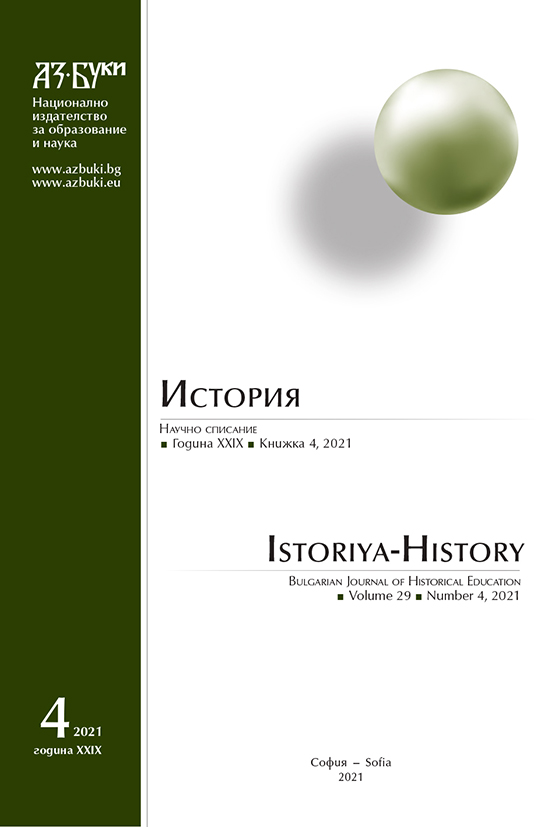
Digital learning has long been talked about. Unfortunately, an undesirable situation brought this idea to the fore. History is a subject with wide possibilities for visualization, which process occupies a central place in the digital learning. This publication examines some aspects of history teaching in the transformation of the learning process from a present to a digital environment, based on observations and personal experience over a year.
More...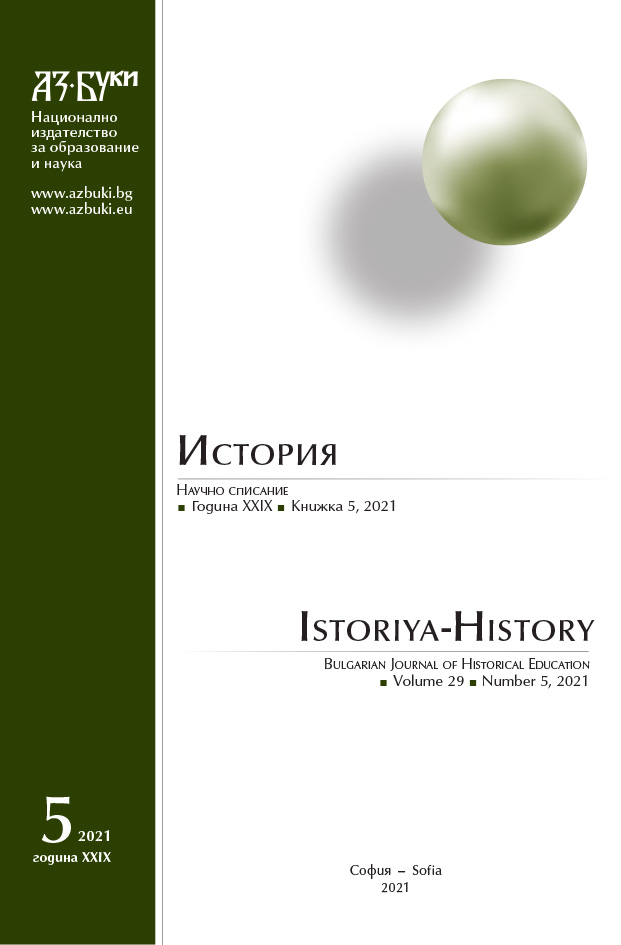
The article deals with the peculiarities of use of presentism as an approach in historical knowledge connected with the relationship between the past and the present. The essence of presentism, its cognitive potential, types, strengths and weaknesses are revealed. Special attention is paid to the analysis of the cognitive capabilities of presentism as a research strategy in history of education, the identification of the risks that arise in connection with its use. It is shown that the main reasons for using presentism in historical and pedagogical research are as follows: substantiation of the relevance of the chosen topic; construction of a methodological research project; substantiation of the practical significance of the results obtained. The emphasis is made on the fact that the presentist approach, the use of which is inevitable, can lead to the distortion of the past, generate bias and tendentiousness in historical analysis, conclusions, generalizations, interpretations, assessments and, thereby, reduce the objectivity, scientific character and theoretical potential of the results obtained. Overcoming the negative consequences of the use of peresentism requires balance and attitude to the historical and pedagogical experience as a unique, inimitable phenomenon that cannot be transferred and repeated in the present in order to solve up-to-date educational problems.
More...